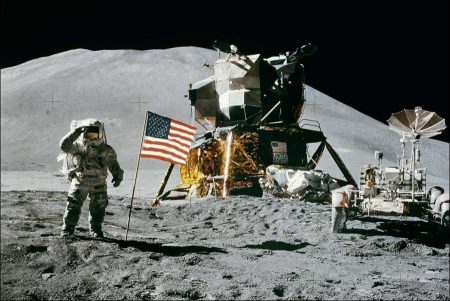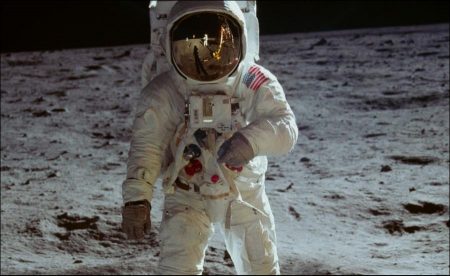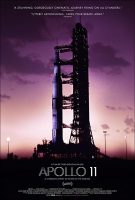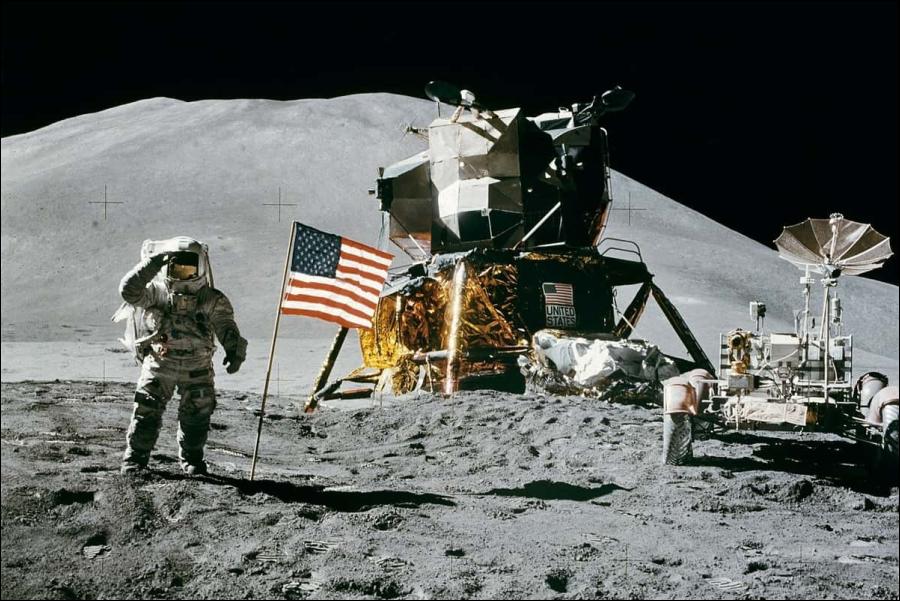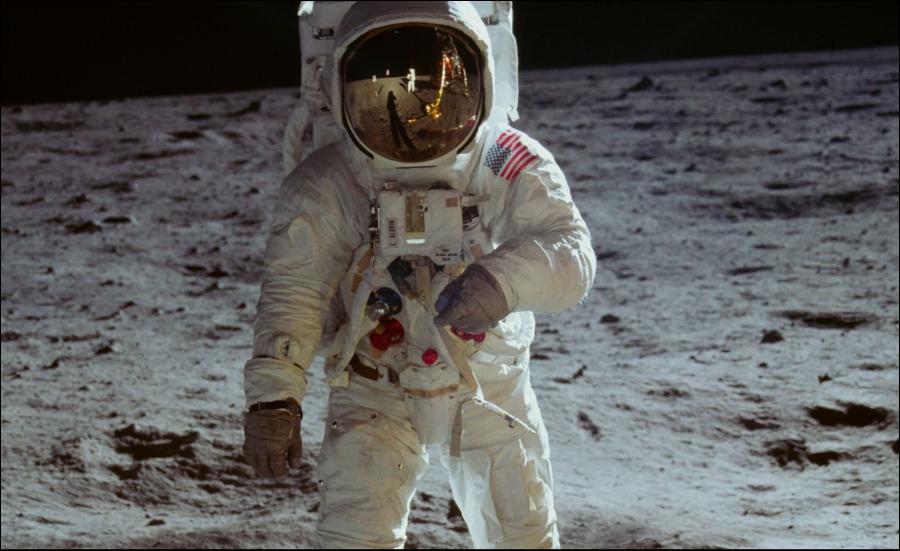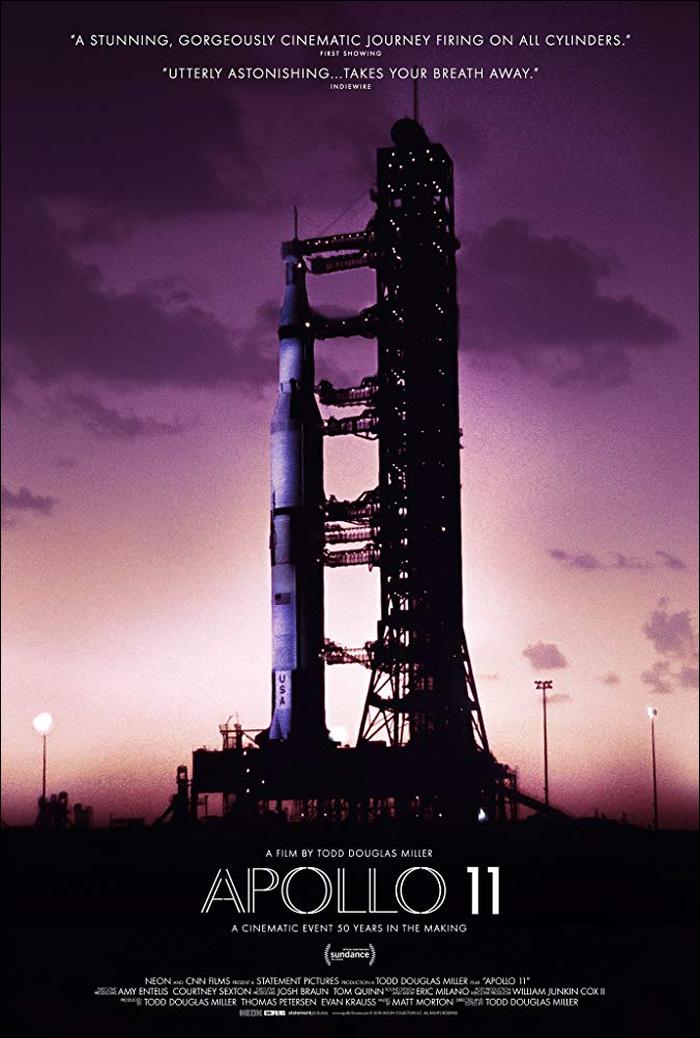An exceptional, vibrant restoration of never-before-seen footage results in one of the most astounding films about space ever made.
The documentary Apollo 11 starts, as the famous mission did, in Cape Canaveral, Florida. Trucks ferry massive rocket props, machinery grinds as it would in any construction zone, the sky is a crystal blue. The scene is, in a word, vibrant – so startlingly alive that for the first few minutes, I wasn’t sure if I was watching footage from 1969 or a Nasa promo shot from last year.
That present-ness is one of the film’s major feats, credit due to director Todd Douglas Miller, who has found a brilliant way to portray the first moon landing by doing nothing more than the gargantuan task of faithfully rejuvenating the historical record. The documentary is seamless curation of archival work; Miller and his team, in partnership with Nasa and the National Archives, sifted through 11,000 hours of uncatalogued audio and restored reams of original film, including hyper-detail 70mm footage that languished in the archives, boxed up and forgotten, since 1969. The result is a stunning project of historical preservation – no narration, no cutaway interviews, no recreations, just original material synced with some music and the occasional diagram.
Apollo 11 arrives early in the mission’s 50th anniversary year, which means the significance of the nation’s space program, from JFK’s promise to put a man on the moon to the famous television broadcast of Neil Armstrong’s first steps, will be under review. Already, the Apollo missions have proved fertile territory for filmmakers; Damien Chazelle’s Armstrong biopic, First Man, offered a deeply studied take on the astronaut and his time in space, while documentaries such as Mission Control: The Unsung Heroes of Apollo combined archives with present-day interviews. Both set a steep goal of bringing an event so entrenched and replicated in the American cultural lexicon to life; so it’s a bit ironic that the filmmakers of the all-archive Apollo 11, who step so far back in 1969 as to be nearly invisible, achieve it.
The 93-minute film is anchored by four pivotal moments in the Apollo 11 mission: lift-off, landing the Eagle lunar module on the moon, reconnecting Eagle with the Columbia spacecraft to return home, and re-entry into Earth’s atmosphere. We already know the outcome of these risks, and yet the sequences are still mesmerizing. With a score that ranges from swelling orchestra to a single thump, thump, thump of a heartbeat, coupled with stitches of headset and Mission Control recordings, the movie’s technical spacecraft scenes are less suspense baits than genuinely moving, hypnotic odes to teamwork.
The film’s emotional power, however, comes not in the documentation of astronauts in space (though that is, of course, undeniably arresting, even half a century on), but in the absolutely incredible footage of the crowds who watched the launch from Earth. Miller’s team meticulously restored wide-lens footage, taken by Nasa’s team on the morning of 16 July, of the nearly 1 million people who gathered on the shores of Florida to watch the take-off; the result is a luminous portal into another, more bouffanted America, one far away, with its old cars and outdated Penney’s logo, but with familiar parking lot parties.
The Apollo 11 mission looms so large in American lore – “one small step for man,” you can fill in the rest – that it seems like a tremendous act of respect on behalf of the film-makers to ground the nine-day mission in its quotidian, idiosyncratic, and sometimes (in the case of the astronauts’ press tour) hammy moments. Apollo 11 juxtaposes massive feats of scale – groundbreaking engineering, built with thousands of minds in cooperation – with mid-century modern ketchup packets and outdated bathing caps. That Miller’s film allows you, without commentary, to make meaning of these contrasts — the whole of Earth in one shot, a parking lot PB&J snack shack in another – feels like a radical act of trust.
I keep waiting to find a fault with Apollo 11, as I usually have to do with things I love at first glance. And while there are legitimate criticisms of America’s space program, it’s hard to argue with a film that defers so humbly to the primary source material. There’s a deep pleasure, especially now, in immersive historical voyeurism, in the illusion that we can transcend the limitations of our own time and understand another collective experience. And there’s something deeply kind in letting the archives stand on their own, of giving the evidence we have of what happened in July 1969 the space to breathe. Perhaps it’s that space – a record of people and incredulity and intense focus, without talking heads or hyperbole – that’s the great humanizing force of Apollo 11.
Apollo 11 (2019)
Directed by: Todd Douglas Miller
Starring: Buzz Aldrin, Joan Ann Archer, Janet Armstrong, Neil Armstrong, Jack Benny, Johnny Carson, Michael Collins, John F. Kennedy, Lyndon B. Johnson, Charles Duke, Jim Lovell
Cinematography by: Adam Holender
Film Editing by: Todd Douglas Miller
Sound Department: Eric Milano
Visual Effects by: Kevin Allen Caby, Ben Kiviat, Ryan D. Romero
Music by: Matt Morton
MPAA Rating: G for all audience.
Distributed by: Neon
Release Date: March 1, 2019 (United States), June 28, 2019 (United Kingdom)
Views: 127
